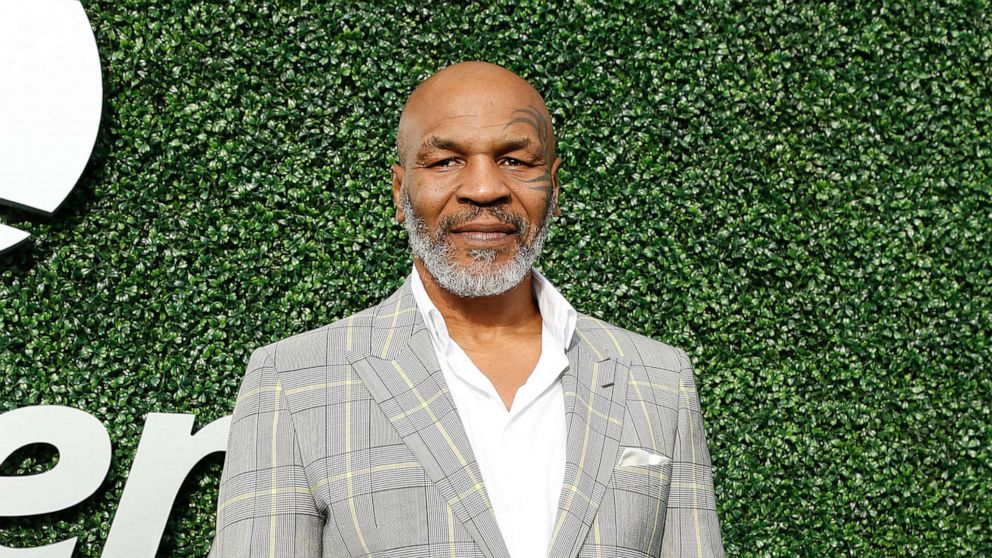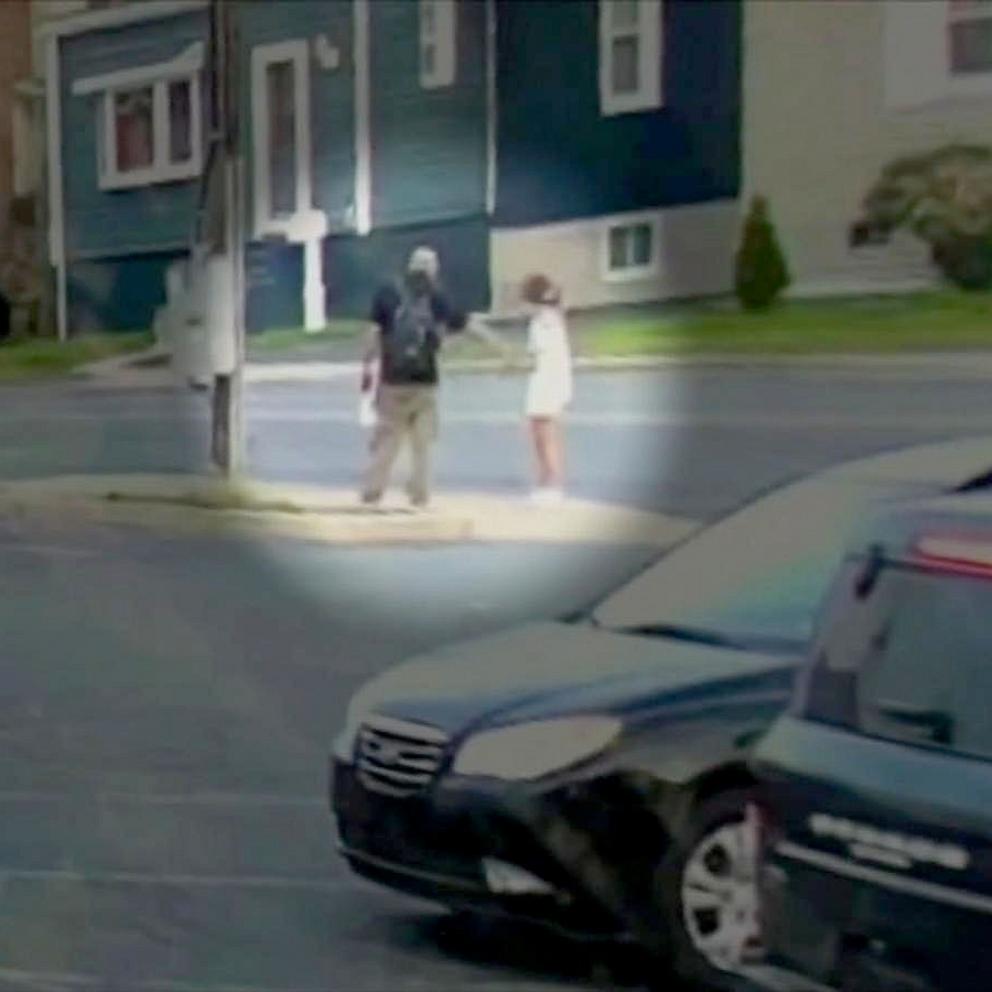People close to Mike Tyson give personal look at his mistakes, losses and triumphs in new documentary
Former boxing promoter Dave Wooley says that during the 1980s, there were three Black men who “ruled the world”: Michael Jackson, Michael Jordan and Mike Tyson.

Mike Tyson: The Knockout
Mike Tyson as you have not seen. ABC enters the ring with the boxing legend, detailing his climb, crash and comeback.
But it was Tyson who was “the most recognizable face on the planet,” ex-manager Jeff Wald said. “More than the Pope, more than Queen Elizabeth, more than the president.”
"In white America, the image of Mike Tyson was that he was scary," said civil rights attorney Carl Douglas. "From the Black perspective, he was a hero because he was a success in the white man's world."
Whatever you think you know about Mike Tyson, he is arguably one of the most complex characters in the history of American sports and culture.
Tyson is a man who survived a childhood of violence and neglect to become a Black icon and world boxing champion. A convicted rapist. And a man who weathered the loss of many friends and family members, and became the punchline of late night jokes.
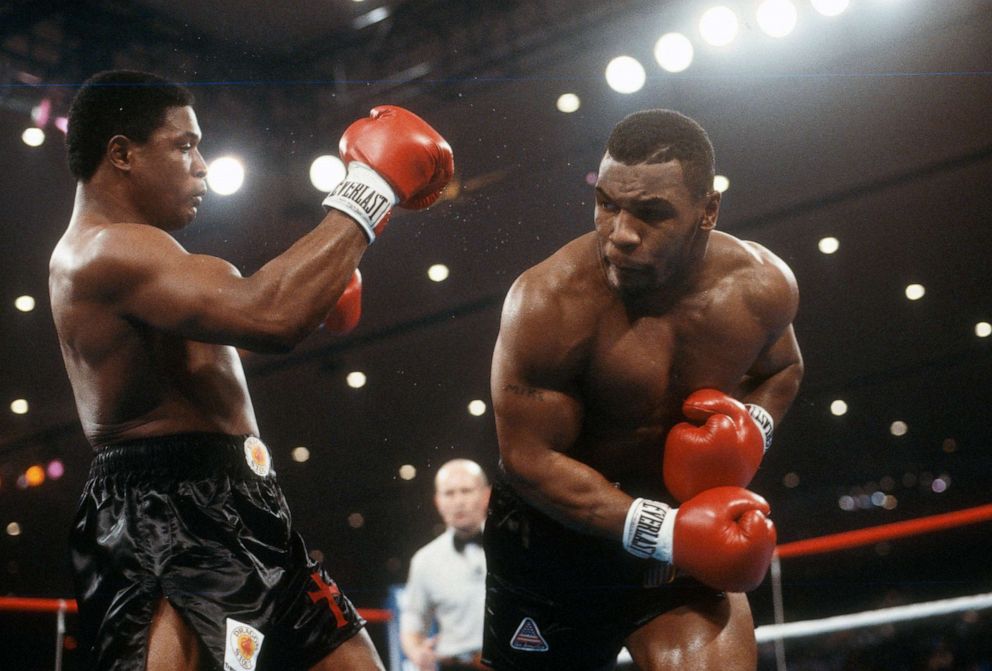
His story “breaks all the rules,” said Mark Kriegel, an ESPN boxing analyst and author. Now, the new two-part ABC News documentary “The Knockout” sets out to explore the former champ's successes, repeated falls and big comebacks from the perspective of those who knew him best.
Watch the full story on May 25 and June 1 at 8 p.m. ET on ABC, or stream it on Hulu in the following days.
Tyson grew up surrounded by violence in the gritty Brownsville neighborhood of Brooklyn, New York.
“The chances of making it out of Brownsville is slim to none,” former world heavyweight champion Shannon Briggs told ABC News. “It’s 50,000 people trying to get through one door, you know what I mean, with no opportunity.”
Tyson’s mother loved him dearly but struggled with alcohol, according to Tyson’s therapist Marilyn Murray.
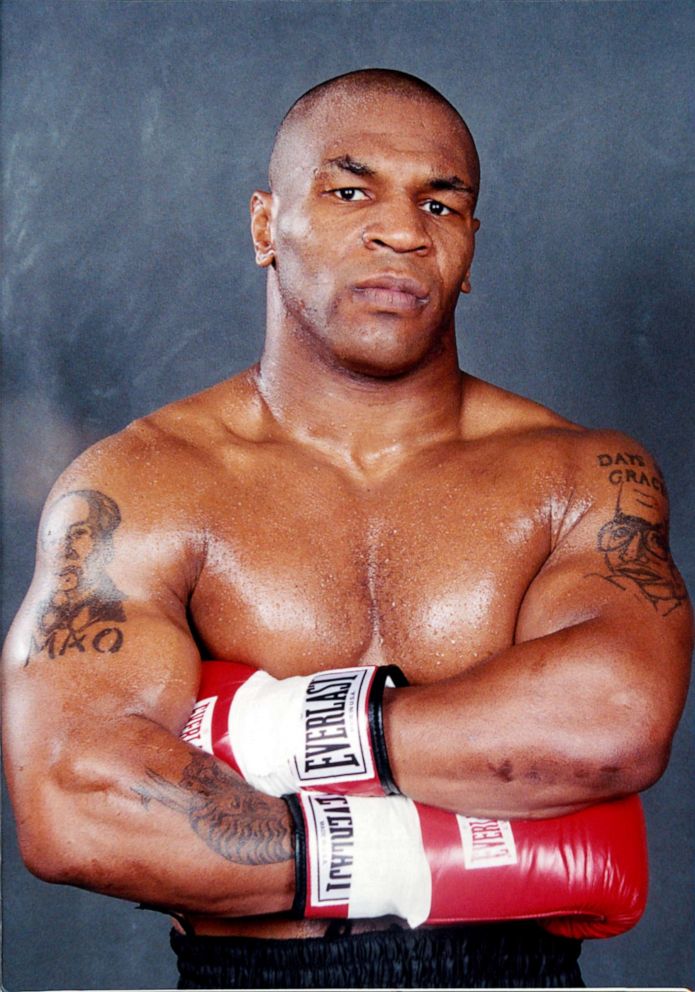
“She would be drinking, she was extremely abusive,” Murray told ABC News. “Oftentimes, his mother would get beat up [by men she brought home] ... so violence, sex, alcoholism, abuse of women -- those were his baseline for normal.”
As a child, Tyson picked up the nickname “Dirty Ike” due to his lack of personal hygiene. He was arrested dozens of times and was eventually sent upstate New York to the Tryon School for Boys, a now-shuttered juvenile facility. It was there he was introduced to Bobby Stewart, a guard at the facility and a former professional boxer, who introduced him to the sport.
“Everything I showed him, it was almost like he’d been doing it for 25 years,” Stewart said.
Stewart introduced Tyson to Cus D’Amato, a famed boxing coach who had trained champions Floyd Patterson and Jose Torres. D'Amato immediately saw Tyson's potential and took him in.
Tyson moved into D’Amato’s home in the Catskills and lived among other young fighters in a sort of dormitory for amateur boxers. D’Amato consistently encouraged the young boxer, telling him that he’d become the greatest. After so much pain leading up to that point in his short life, Tyson finally had safety, direction and support.
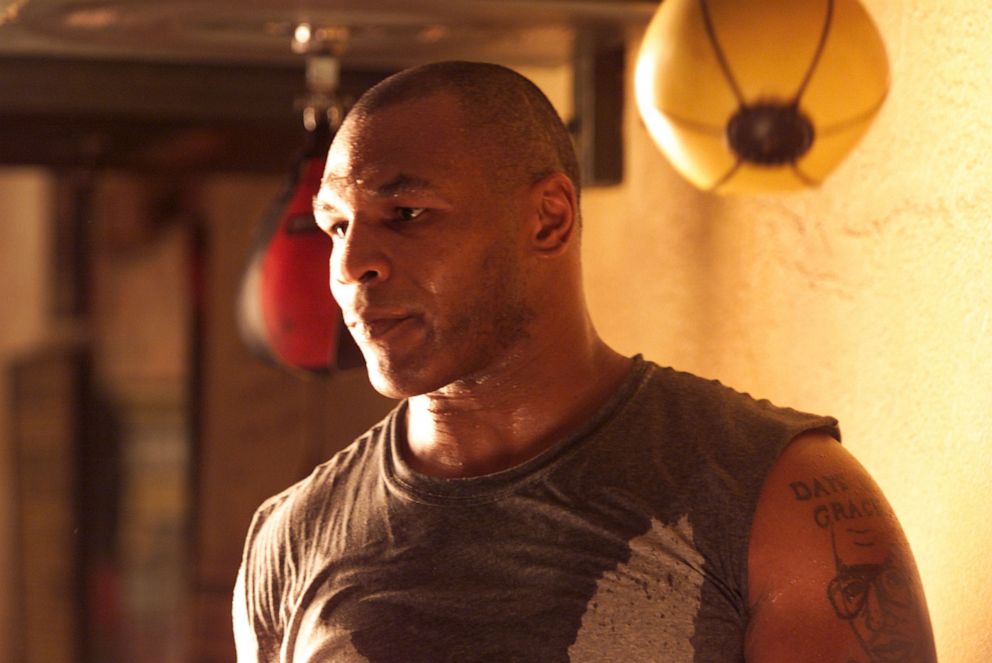
“Cus would repeat over and over to Mike from the beginning, ‘Do you know you're going to be heavyweight champion of the world someday?’” said Nadia Hujtyn, a boxing coach and assistant to D’Amato. “If you say it enough times, you believe it. And if you believe it, then you'll have no doubt.”
Yet, as Tyson’s life began to take a turn, he would come to know the loss of many loved ones. Tyson’s mother died in 1982. He was 16 and living with D’Amato, who later became his legal guardian. It wasn’t long after that when, in 1985, D’Amato also died.
“I'm sure, at some point, Cus and Mike had a conversation about death,” former world heavyweight champion Michael Bentt told ABC News.
“You have a mission to commit to, we have a pact. If I'm here or not, you complete that pact” of fulfilling D’Amato’s dream of becoming a champion, Bentt said.
On Nov. 22, 1986, Tyson entered the record books as the youngest heavyweight champion in history when he defeated Trevor Berbick, the last man to fight Muhammad Ali.
Tyson’s life was changed forever. He went from living in Brownsville to becoming a multi-millionaire at just 20 years old, and the money kept rushing in. Companies from Pepsi to Toyota wanted to hand him a paycheck to sell their products, and beautiful women vied for his attention.
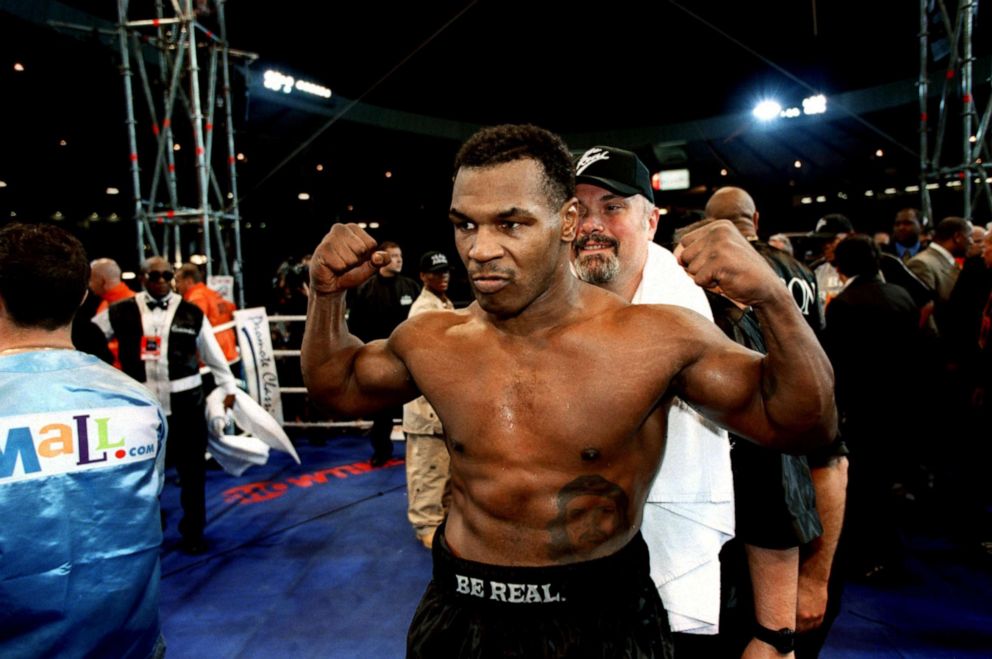
“I would have girls pull up to the limousine and throw their underwear at me and say, ‘Give this to your boss. Here's my number.’ It was non stop with groupies,” Tyson’s bodyguard and chauffeur Rudy Gonzalez said.
Those who were watching Tyson, however, say his meteoric rise to fame seemed to be a difficult adjustment.
“The night he won the title from Trevor Berbick, I came in from a club at 4 in the morning and who was sitting in the lobby by himself with that title belt around his waist, but Mike Tyson,” said Wallace Matthews, a boxing writer for “Newsday” and “The New York Post.” “He was lonely, isolated. [He] wasn't sure what to do with himself.”
Instead of running away from his childhood, the champ made a point to return to his neighborhood in Brooklyn. Lori Grinker, a photographer who documented Tyson in his early years, says she can remember riding in a car with him, seeing kids rip up what appeared to be paper bags for him to autograph. He was a hometown hero and he gave out cash to the homeless.
Tyson eventually fell head over heels for actress Robin Givens. They married but their relationship began to fall apart as the media buzzed with abuse allegations.
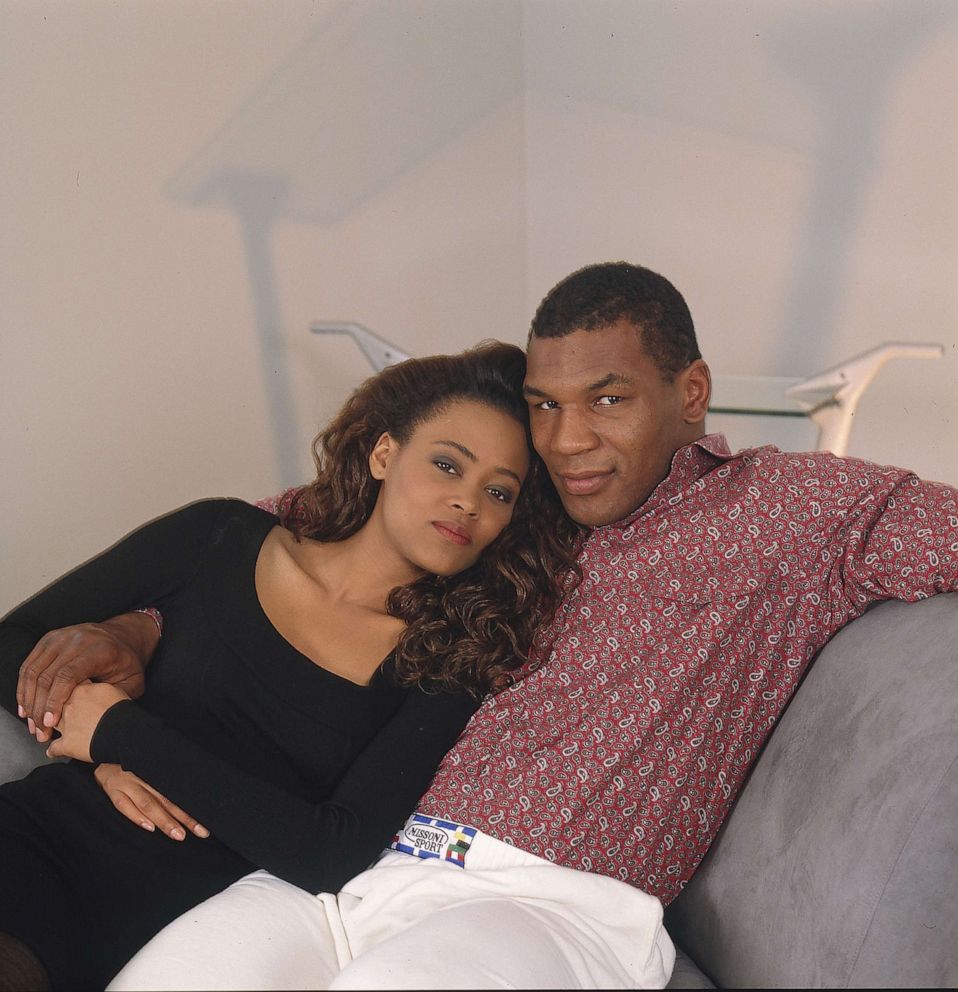
In 1988, Tyson sat down with Givens for an interview with Barbara Walters on ABC News’ “20/20.” Former HBO Sports president Ross Greenburg described the interview as “one of the most remarkable, strange interviews in the history of the medium.”
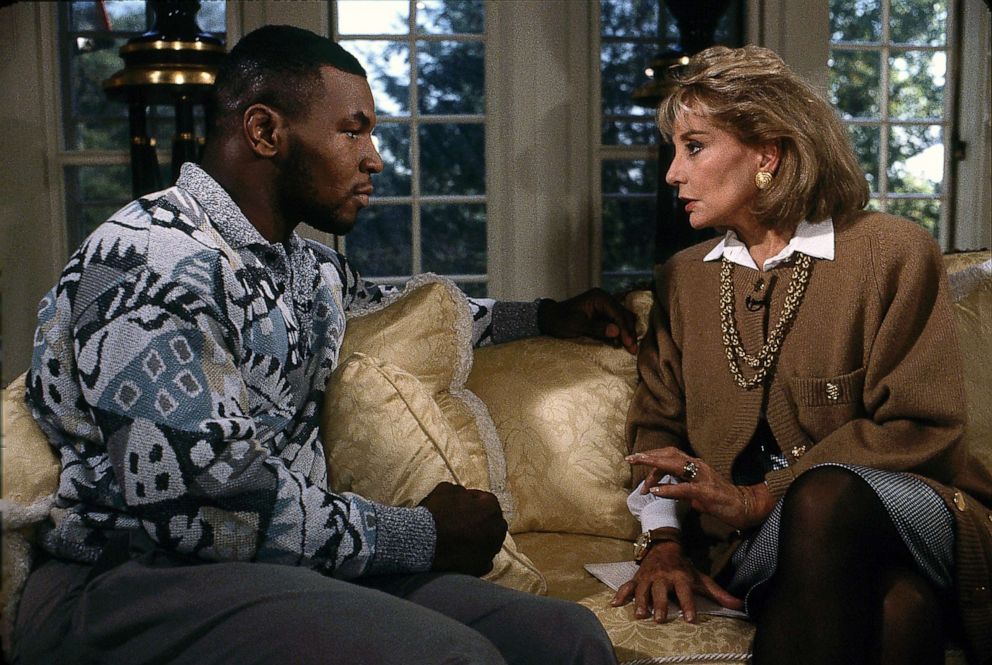
During the interview, Tyson said he never hit his wife. But Givens told Walters that Tyson had an “extremely volatile temper” and that he “shakes” and “pushes” her.
“Sometimes I think he’s trying to scare me,” she said.
Gonzalez said it was as if Givens “led him right into the limelight and then dropped the hammer on him in front of the world.”
Givens later filed for divorce and sued Tyson for $125 million. In 2009, Mike Tyson admitted to Oprah Winfrey that he had "socked" Givens and that it was “definitely” an abusive relationship “both ways.” Givens, who declined an interview with ABC News for this documentary, also denied to Oprah that she had abused Tyson.
During this time, he constantly made headlines. In separate incidents, he’d gotten into a brawl outside the ring with fighter Mitch Green, crashed his car into a tree, and attacked a news crew that had caught him on a morning run.
"You couldn't keep up with it," said Matthews. "This guy basically was reality television way before reality TV was invented."
Now a single man, those close to him said he relished in the luxury of his fame and wealth.
“We had four penthouse apartments, three mansions … 200 cars, a lot of jewelry,” Gonzalez said. “People wanted to see Mike Tyson just spend a million dollars in Gianni Versace.”
Randy Gordon, former editor in chief of “Ring Magazine” and the former chairman of the New York State Athletic Commission, said that “every single night, instead of resting, Tyson was partying.”
Meanwhile, his next opponent, James “Buster” Douglas, was “training, and resting, and training, and resting,” Gordon said.
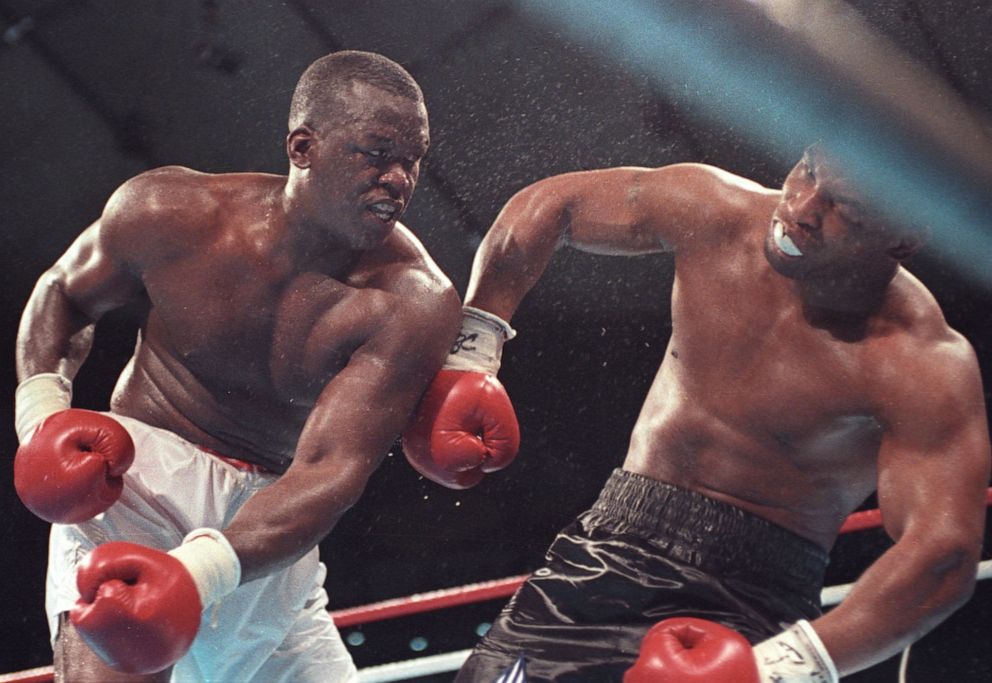
On Feb. 11, 1990, Douglas was deemed to be an overwhelming underdog with a 42-to-1 chance of winning. Tyson had been undefeated at the time.
“I really thrived off that negativity,” Douglas told ABC News. “I knew that I had the ability to go fight Tyson.”
Douglas was right. What’s more, he ended up dethroning the king in a 10th-round knockout that shocked the world. To this day, many consider Tyson’s loss in that match to be the biggest upset in heavyweight boxing history.
Mike Tyson is convicted of rape, sent to prison
Tyson was not the only celebrity to appear at the Black Expo, a celebration of Black culture, in Indianapolis, but those who were there say that Tyson was the biggest draw.
Gonzalez said maybe “history would have a different ending” had the boxer not attended.
“When he entered the room, women were just crazy,” Jackie Boatwright-Daus, a 1991 Miss Black America pageant contestant, told ABC News. “I do distinctly remember a woman taking her underwear off and throwing it ... and screaming something about, ‘Mike, you're an animal, but I'll tame you.’”
Fellow contestant Parquita Nassau said Tyson “was playful.” But, she said he could also be assertive.
“I told him I was from Georgia and Mike Tyson responded, ‘Oh good. Because I like to eat and I'm not talking about food.’ And so, at that point I backed off,” Nassau said. “I recall him looking at the group of girls around him and he would point and go, ‘I want to F you, you, you, you, and bring your roommate too, because, you know, I'm a celebrity and we do that kind of thing.’ There were some other girls in the room who didn't care, and they gathered even more. Because, again, it was Mike Tyson.”
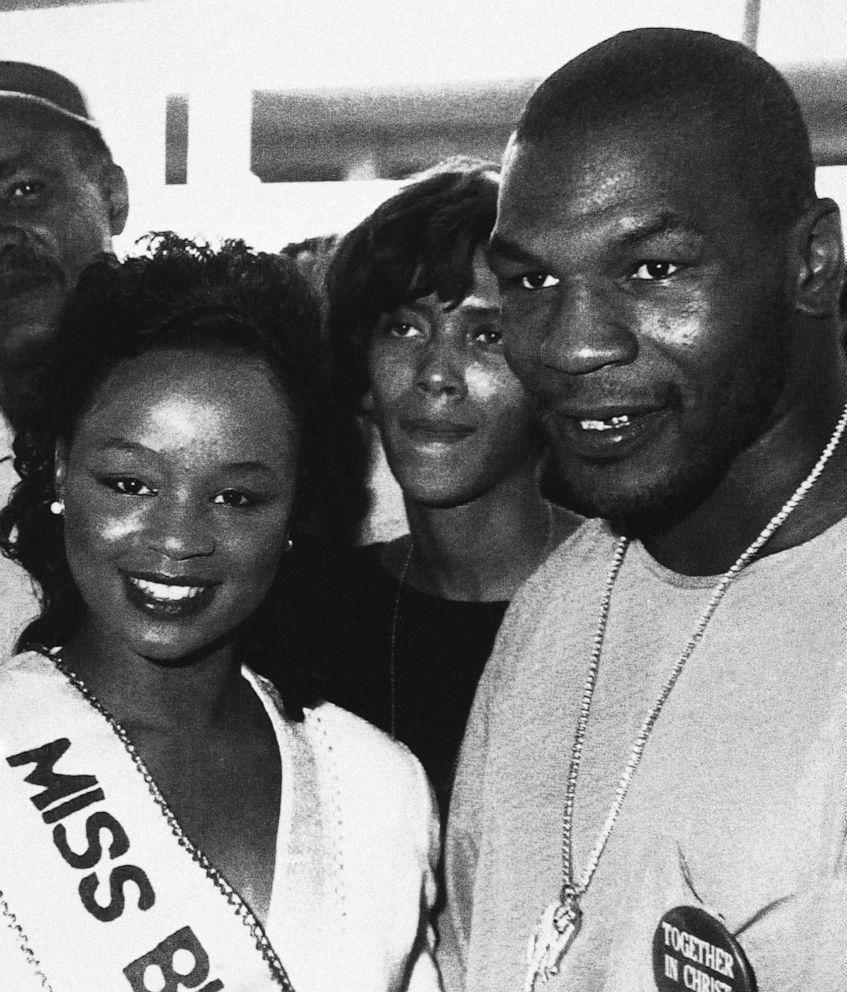
Nassau says another contestant, Desiree Washington, said Tyson was her father’s hero.
“When [Washington] was in the room with Mike, her eyes just lit up. ... She just has this look on her face like, ‘Wow,’” Boatwright said. “We were all young. We were silly girls and most of us never had an opportunity to be that close to a celebrity.”
Nassau said Washington was much younger than her, at only 18 years old at the time. Nassau said she remembered hearing a “conversation” about Washington going on a double date with Tyson.
Then, on Sept. 9, 1991, Tyson was arrested and charged with rape. Gonzalez said he remembers Tyson being “scared.”
“I didn't hurt anyone or do anything to anyone. And [I] love women. My mother is a woman. I respect them as well,” Tyson said during a press conference after his arraignment. “Desiree Washington knows what happened in the room. I know what happened. And I know I'm innocent.”
“I can't even imagine what it must've been like for Desiree,” Nassau said. “I mean, literally people would get in your face, like, ‘Mike Tyson didn't do that. He could have never done that.’”
The news media descended on Indianapolis to cover the story.
“The first, ‘Oh, no’ moment was an entire city block lined up with satellite trucks. ABC, NBC, CBS, CNN, ESPN, all these. It's the big time,” said Greg Garrison, who prosecuted the case. He remembered the “anxiety” made him “sick.”
Before it even began, the country knew it would be a landmark trial.
“This case represented a lot to a lot of people. Perhaps, the end of a career of a famous athlete,” said
Former New York Times Reporter E.R. Shipp, who covered the case. “For many women, it was an opportunity for victims of what was called ‘date rape’ or ‘acquaintance rape’ to be taken seriously. For Black people, there were myriad questions about justice for Black men and justice for Black women.”
Nassau said she remembers an “explosive” reaction to the trial from the Black community. It was also divided, with some people vocally siding with Tyson, believing the accusations were an attempt to negate his success.
“One of the Black Baptist denominations, they were strong supporters of [Tyson],” Shipp said. “There was a question of why do you side with Mike Tyson, the bad boy, against Desiree Washington, the good girl who's also a member of the denomination and is a Sunday school teacher?”
“Black women have had to fight for themselves and fend for themselves for years,” Shipp added. “Sometimes, their abusers have been Black men, but because Black men are also being treated as they have been by the larger society, Black women are often dissuaded from coming forward.”
Tyson’s promoter, Don King, was responsible for getting him a lawyer. But attorney Carl Douglas says he “probably did not make the best decision” when he retained Vince Fuller, a lawyer from Washington, D.C.
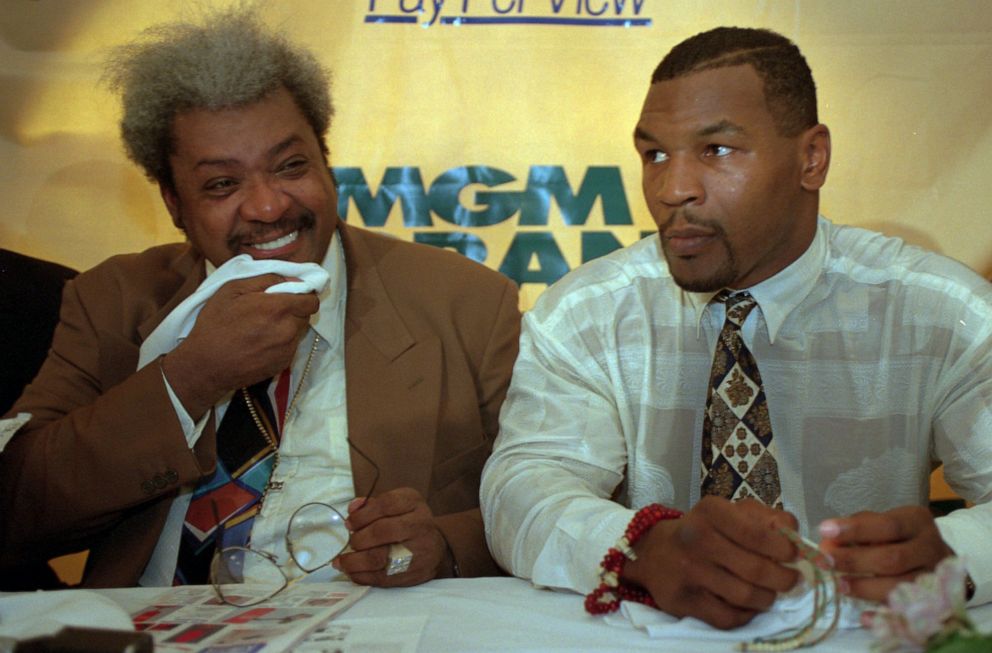
Legal analyst Mark Shaw said Fuller's argument was akin to “Mike Tyson is basically the worst human being on the face of the earth, ladies and gentlemen of the jury, and so [Washington] should have known better than to go up into the hotel room.”
It’s a particularly “insidious” defense, Douglas said. “I dare say, if there had been an African American lawyer on Mike Tyson's team, they would not have put forward that defense.”
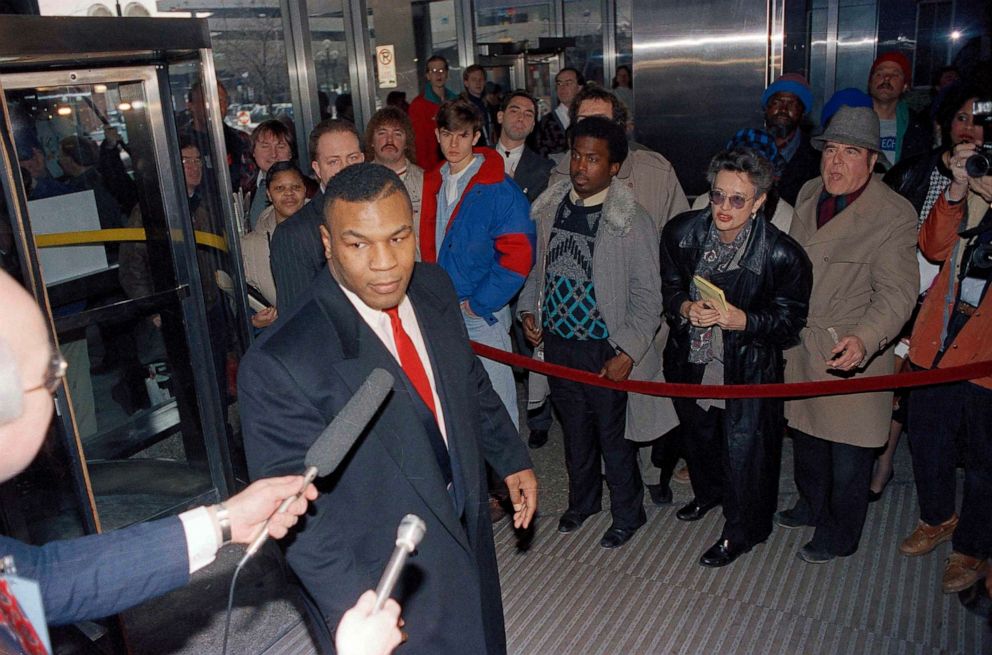
Garrison said he remembered when Washington walked into the courtroom.
“There was this quiet gasp in the gallery. … She was 106 pounds. Just a delicate, little thing, and so the juxtaposition of him at 240 [pounds] ... and her at 18 years old was pretty powerful stuff.”
Tyson has always maintained that Washington had gone to his room voluntarily and agreed to sex, and that there was no time in which he had sex with her against her will. Then, five words changed the course of the trial, Shaw said.
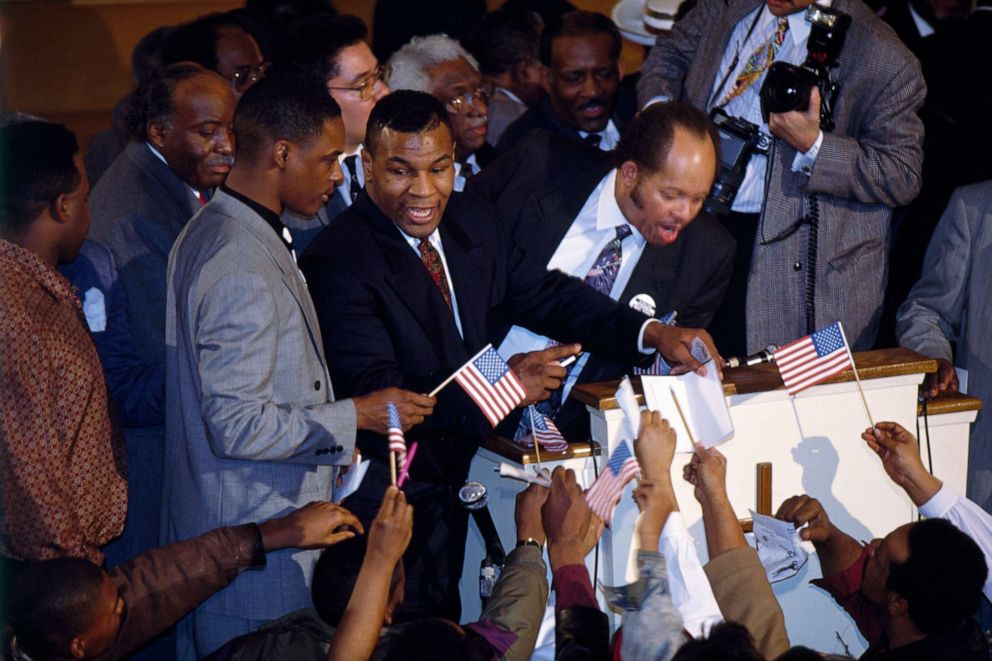
“He admitted at some point, he said to Desiree Washington, ‘I want to f--- you,’” Shaw said. “I looked over at the jury... If you want to see anger on the front of people's faces the moment after something is said, it was there. Five words changed everything.”
Tyson was convicted of rape on Feb. 10, 1992, and sentenced to six years in prison. He was paroled after three.
“Desiree is such a little girl, but it's a powerful notion,” Nassau said. “She brought down a huge icon. Mike Tyson had been undefeated, for the most part. Here this 18-year-old contestant comes along and she defeats him.”
Nearly 30 years after the trial, Shipp says there’s still important work remaining to support Black women.
“Black women are still fighting to be heard. We're still fighting to be believed,” Shipp said. “There's still the questions being raised about, ‘Why are you bringing this up? Why did you let it happen?’ We still face those questions, as women and particularly as Black women.”
Washington filed a civil suit against Tyson in June 1992 and settled out of court three years later for an undisclosed amount. Today, she works as a teacher.
Tyson went to prison on March 26, 1992. He appealed his conviction on a number of grounds, including the exclusion of certain witnesses and the adequacy of the jury instructions.
In 1993, the Indiana Court of Appeals, Second District, upheld his conviction and declined to grant him a new trial.
Mike Tyson’s next chapter
“Mike said to me ‘I definitely did not do what I was accused of then, but I have done things in my life that I didn't get caught from that I deserve to be, and so, I figured that it was just my time to have to pay the price,’” Murray, his therapist, said.
Tyson used his three years behind bars to read and learn, said James Voyles, Tyson’s defense attorney. In a 1994 jailhouse interview, he spoke about reading Homer and coming to “understand Islam, to become a Muslim, and be proud of becoming a Muslim.”
On March 26, 1995, the world eagerly awaited Tyson’s release. It was clear he wasn’t the same man as the one who went in, said Todd Boyd, a professor of media studies at the University of Southern California. Many people wondered if he would return to the ring.
But at a highly anticipated press conference, Tyson made a definitive announcement: "I will fight again."
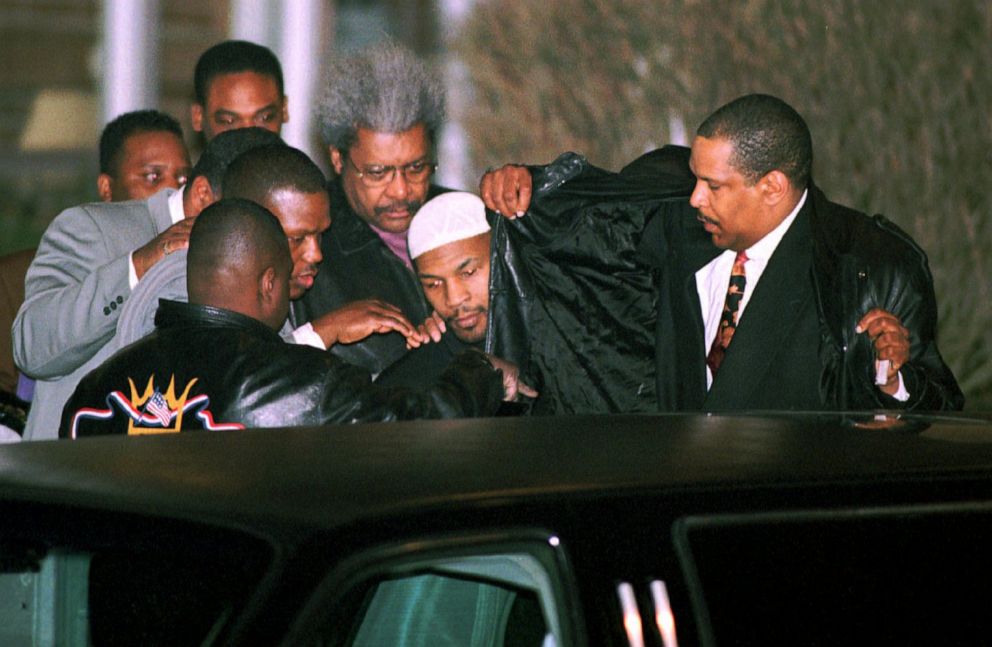
ESPN anchor Jeremy Schaap noted that if Tyson gotten out of prison today rather than in 1995, “after spending three years in prison for rape, I don't think he'd reintegrate into society again as a celebrity. But boxing allowed him to continue to fight. And so, he maintained his relevancy.”
Journalist Danyel Smith agreed.
"Let me say this," she said, "I would like to think that in this #MeToo era that Mike Tyson would be held to some different standard.
From August 1995 to September 1996, Tyson fought in a flurry of victorious matches -- facing off against fighters Peter McNeeley, Buster Mathis Jr., Frank Bruno and Bruce Seldon.
He represented all of New York City in the ring and became closely tied to hip-hop, according to actor Rosie Perez, a boxing aficionado from Brooklyn.
When speaking about his match against Seldon in 1996, Perez said Tyson walked out to a Tupac Shakur song. She said she sees many parallels between Shakur and Tyson, who’d become friends.
“Just as Mike did for the heavyweight division in boxing, Tupac Shakur did for hip-hop. He was a game changer,” she said. “They both understood each other for being two individuals that were highly misunderstood. So I think that it was inevitable for them to become friends.”
Shakur visited Tyson in his dressing room after the Seldon fight, hours before he was shot and killed in Las Vegas. At that moment, Shakur became another friend of Tyson’s who’d died.
The Holyfield fight
On Nov. 9, 1996, Evander Holyfield faced Tyson in the ring. Holyfield was physically bigger than Tyson and figured out how to throw Tyson off his rhythm with body blows, even stunning him with a head butt, Perez said.
“Holyfield out-dirtied him. He beat him. He bullied him. He bullied the bully,” said Kriegel. “Losing in boxing isn't like losing in another sport. It's not like you dropped a doubleheader this weekend. It's a kind of death.”
Tyson’s loss to Holyfield had a dramatic impact on his psyche, according to Larry Hazzard, former commissioner of the New Jersey State Athletic Control Board. Tyson was eager to face him again and on June 28, 1997, they each gave it their all in a rematch.
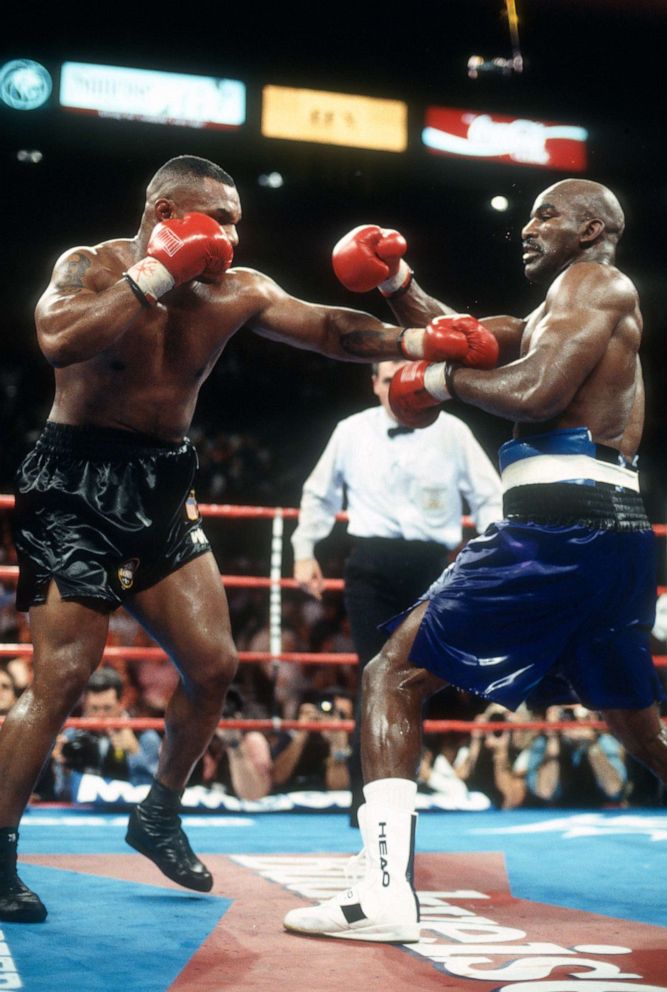
“Halfway through that fight, I could see things changing. I could see Mike's confidence was leaving,” Hazzard said. “I could see that Evander Holyfield's confidence was constantly building. They were clashing a lot.”
In the first several rounds, Holyfield headbutted again and opened a gash over Tyson’s eye, visibly frustrating the veteran boxer. He looked to Mills Lane, the referee, and was ignored, according to Jeff Wald, Tyson's former manager.
Perez said she noticed a change in Tyson in that moment.
“All of a sudden it wasn't Mike Tyson, the champion. It was Mike Tyson from Brownsville that got cheated, that got spit on, that got sucker-punched, that got underestimated and didn't receive the proper love and guidance from home,” Perez remembered. “He didn't know what to do except to bite, and bite he did.”
Matthews said he remembers Tyson biting off a chunk of Holyfield’s ear and spitting it back out at his feet. Many fans were angry and disgusted by the act, Matthews said. For others, it was a heartbreaking moment -- a realization that Tyson may have truly just ended his own career, Perez said.
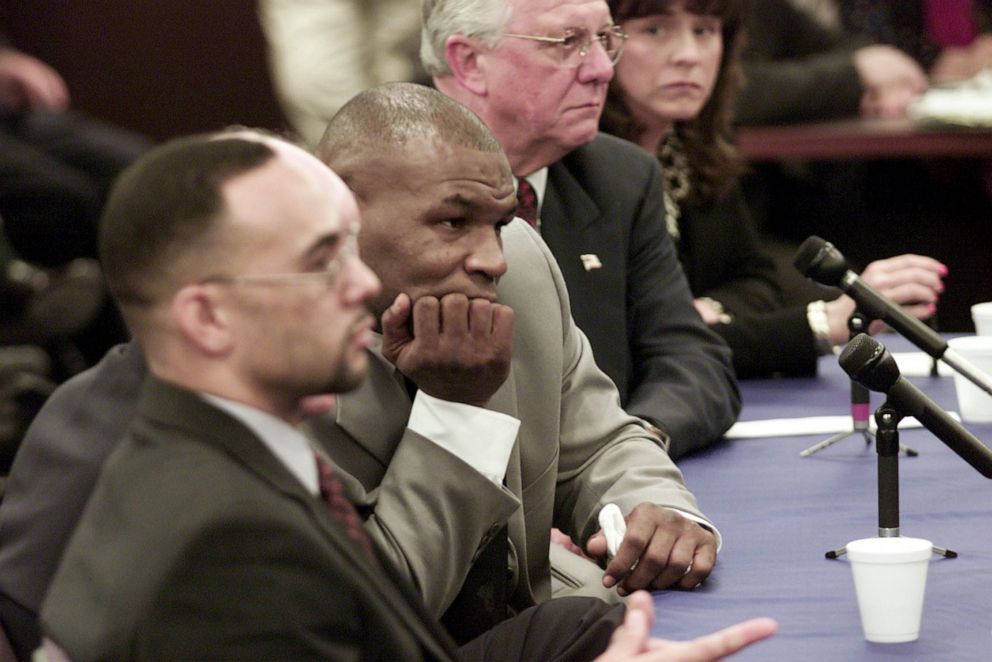
“Jesus, it was chaotic,” sportscaster Jim Gray remembered. “The sheriffs and the police got in the ring and tried to separate the fighters and they took him outta the ring, and then he was just showered with debris and beer.”
The incident generated headlines around the world, further raising Tyson's notoriety.
But the negative attention took a toll on him, according to Latondia Lawson, Tyson’s friend and former director of boxing operations, who said it seemed as if he was battling his demons.
“Mike was really in a real dark period of his life,” Hazzard said.
He was accused of assaulting a man at a nightclub, and later, two women in Baltimore.
“Whether it was by design or not, he played exactly the role the media wanted him to play,” Kriegel said. “He wanted to play the bad guy, and we wanted him to play the bad guy.”
Former boxer Bentt said Tyson’s public meltdowns might have saved him, though.
“The pressure is like being in someone's fist and you can't breathe,” Bentt said. “That was his outlet. You have to express that. And yeah, it's ugly. It's impolite, but that was part of his manner of articulating his pain.”
Tyson began drawing people’s attention not for being a champion boxer who rose from the streets of Brownsville, but rather to witness the mayhem that came with his presence, Schaap said, including trying to break Francois Botha’s arm during a 1999 match. In 2000, he tried to attack a referee.
In 2002, as he looked forward to a match against Lennox Lewis, boxing observers say his skills seemed to be eroding. Lewis beat Tyson in an eight-round knockout.
A year later, Tyson arrived to fight Clifford Etienne with a tattoo covering half his face. Schaap recalled asking Tyson why he tattooed his face, saying that Tyson told him he got the tattoo “because I hate myself. Because I was sick at looking at myself in the mirror.”
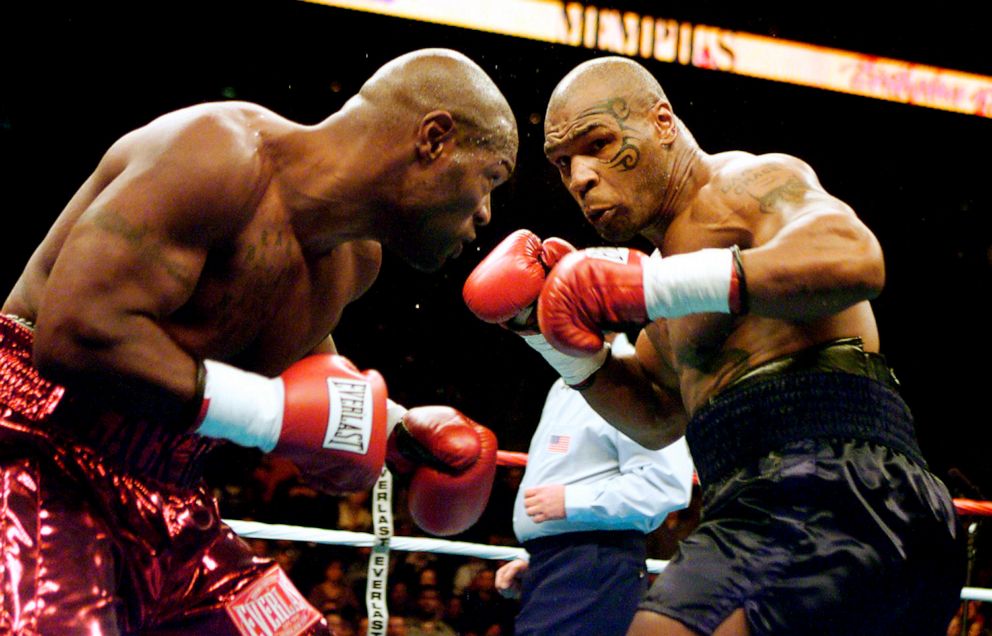
On June 11, 2005, Tyson entered the ring against Kevin McBride in what became his last professional fight. McBride had been offered $150,000 to fight in the match.
“I said I don’t care what they are offering. I would’ve fought Mike Tyson for nothing,” McBride said.
He ultimately won.
“When Kevin McBride pounded him and Tyson went down, you could look at his face, and you could see resignation on his face. Something we had never seen before,” Gordon, former editor in chief of “Ring” magazine, said.
Life after boxing
Tyson never thought he’d have to envision a life after boxing, Schaap said. Fox Sports host Skip Bayless says he witnessed Tyson struggling with the image for which people had come to know him, and it was not the man he wanted to be.
“It's just so ironic when people see me ... they want me to curse them out, they want me to grab my crotch and they want me to be that tough guy,” Tyson said in 2006. “I want to change, I want to run away from that guy but everybody always pulls that guy back out of me.”
“He really wanted to be somebody that could be respectful of other people and that they would respect him for who he originally was, not for all of the craziness [and] hype,” Murray said. “I remember him being very tearful, saying, ‘I’m not that man anymore. I don’t hate people anymore.’”
Tyson struggled with this next chapter, pleading guilty to drug possession and driving under the influence in 2007.
In May 2009, Tyson’s 4-year-old daughter, Exodus, died in an accident on a treadmill in her home. Those close to Tyson say they witnessed his complete devastation and grief.
“My wife Fran and I, we just called to let him know we cared about him and we were there for him,” Gray said. “I do remember Mike saying that all the things that happened in his life, he could've died on numerous occasions, and at that point, he had wished that perhaps he would've been dead.”
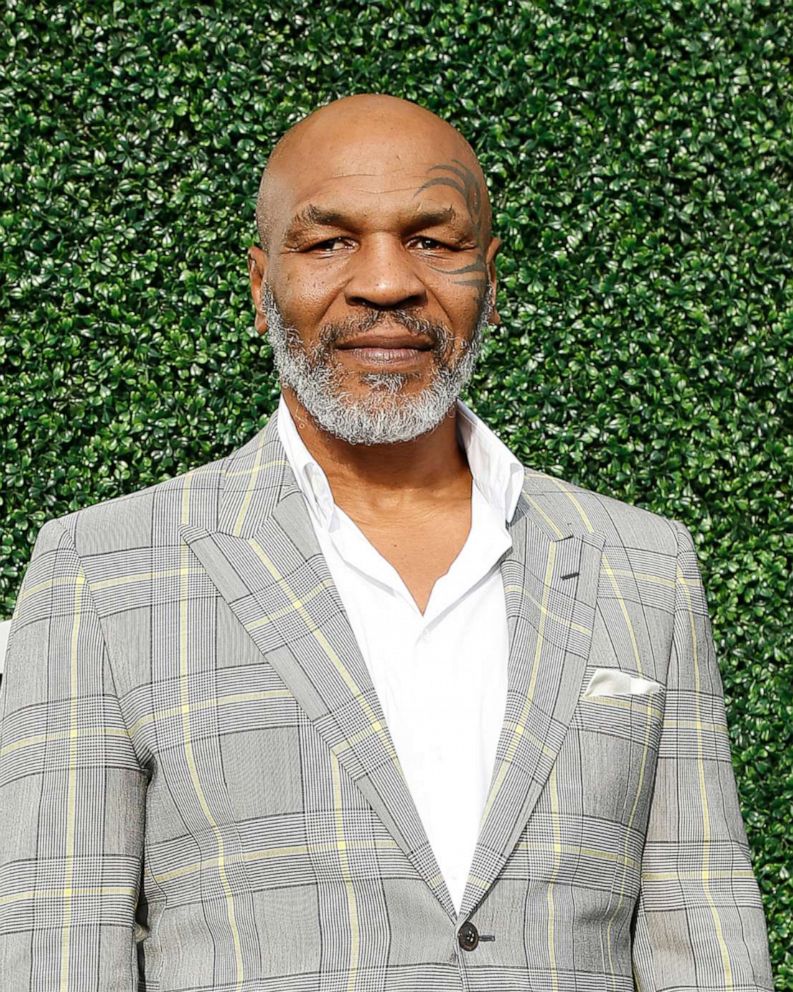
Lawson said the loss was a transition for Tyson.
“It made him recognize how important it is to be a father figure,” she said. “Being present in his kids' life and not just being a provider. It was a big part of his change. “
Murray said that when Tyson first came to see her for therapy, he did not cry at all. But as time went on, they were able to talk about issues from his past. Sometimes, she said, he would spend the session sobbing.
Coming out of therapy, he began to right his past wrongs. In 2009, Tyson apologized to Holyfield for the biting incident during an appearance on Oprah Winfrey’s talk show.
“I knew how much it bothered him and I knew he had been carrying that for so long,” Lawson said. “To be able to look him in his eye and announce this to the world as well -- how good for Mike.”
In the 2009 film "The Hangover," he played himself, cracking jokes and singing Phil Collins. The movie was an instant hit, introducing him to a new generation of fans who didn't know him as a fighter.
The movie changed his narrative yet again. He became likable and endearing, said Kriegel, once more defying all the rules.
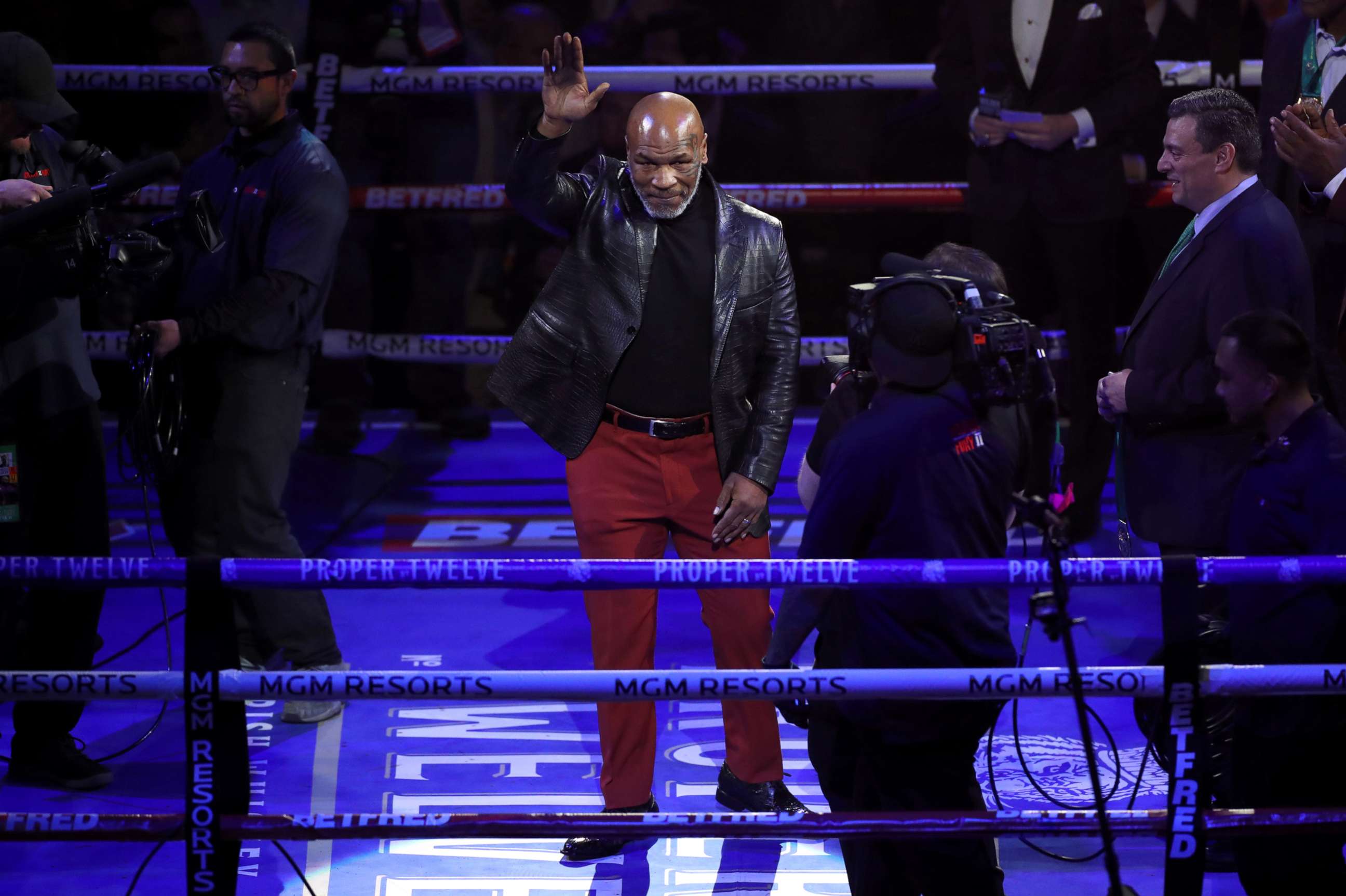
Anthony Michael Hall, an actor and a friend of Tyson’s, said Tyson has “incredible intellect, and a great heart, and a wicked sense of humor -- a lot of things people didn’t give him credit for -- and it's been great to see this new Mike emerge over the last 20 years.”
Tyson got married to Lakiha “Kiki” Spicer in 2009. Loved ones say she has been a huge support.
“He had always said, ‘I want to be able to be faithful to one woman and to be a good father who is there for my children,’ and I think that's what Kiki has been for him,” Murray said.
Spicer worked with her husband and Spike Lee on a one-man play called “Undisputed Truth” to tell Tyson’s story.
Tyson has been extremely open and honest about the trauma he lived through and the forces that shaped him, Bentt including revealing to Schaap in 2017 that he had been molested as a child and that he has carried that rage and pain for years.
While reflecting on the many ups and downs of Tyson's life, fellow champion Shannon Briggs said, “When the bell rings, the fight don't end -- the fight of life.”
“Here was a guy who was just like us, went to the same schools, ate free lunch and grew up just like we did,” Briggs said. “You could be down and out, lose everything, but guess what, you got a chance -- do something. Use that energy, use your pain as a fuel, and Mike Tyson shows you that.”
Tyson, in his own words
In November 2020, Tyson, now 54, sat down with “Nightline” co-anchor Byron Pitts as he was preparing for an exhibition match against Roy Jones. During the interview, Tyson reflected on who he used to be.
“That guy, he didn’t have any self-love or self-respect, so of course he doesn’t wanna live. He doesn’t like himself,” he said. “That guy’s dead. You know, [if] we’re boxing, I’m gonna be that guy then -- but as far as living, that guy is dead. I’m trying to kill that guy, but that guy was my only salvation for a long time.”
Today, Tyson co-hosts the podcast “HotBoxin’ with Mike Tyson.” He also runs “Legends Only League,” which is aimed at giving retired athletes a chance to compete again.
He said that for a long time, all he cared about was “beating everybody, having all the women, all the cars, planes [and] boats.
But today, he has an entirely different definition for success.
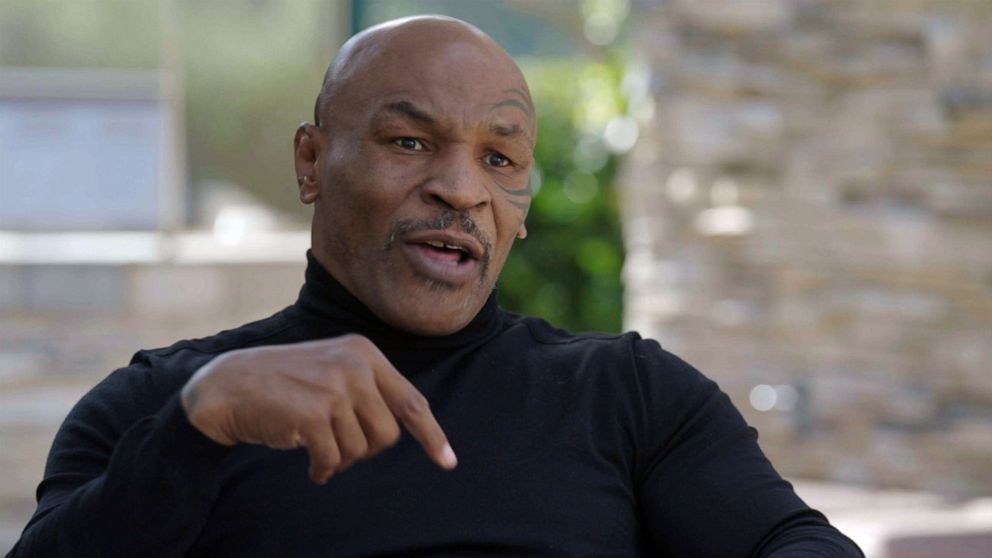
“Success for me is not cheating on my wife. Success for me is not going to prison. Success for me is being responsible and being present,” he said. “I’m from Brownsville, Brooklyn, and I have a penchant for violence. ... I still have the possibility that there’s a little act to do something really stupid and lose everything.
The November 2020 exhibition fight ended in a draw, but Tyson says he plans on returning to the ring again soon.
“Life has beat me into submission. Life was tougher than me so I’m trying to go the other way now... I’m committed and living the other way,” Tyson said. “I learned gratitude. This is what I learned from life kicking my ass. I learned gratitude.”
